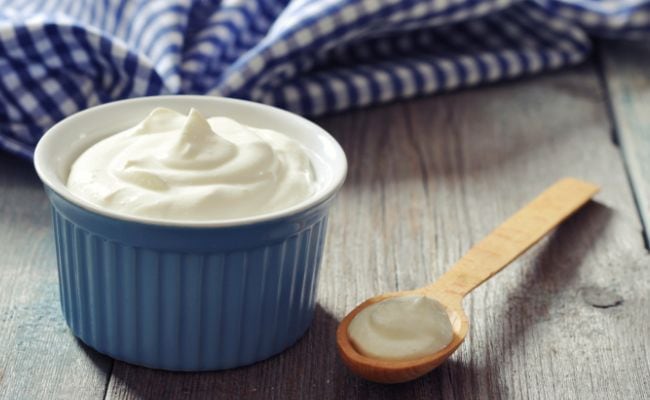From butter to cheese and milk to curd, dairy is an important part of a balanced diet. Curd or yogurt, also known as ‘Dahi’, is a superhero in the dairy aisle. It is known to improve our digestion by being a probiotic and strengthens our bones due to the calcium content. But what we may have not known is that eating curd daily may help in cutting down the risk of developing breast cancer.A new study, published in the journal Applied and Environmental Microbiology, shows that regular consumption of probiotics may help increase the proportion of beneficial bacteria in the breast and thus aid in preventing the risk of breast cancer. Lactobacillus and Streptococcus are considered to be health-promoting bacteria and these were more prevalent in healthy breasts than in cancerous ones. Both groups of bacteria are known to have anti-carcinogenic properties. "Our work shows that women, especially those at a higher risk for breast cancer, take probiotic lactobacilli to increase the proportion of beneficial bacteria in the breast," said Gregor Reid, Professor at Western University in Canada. Conversely, women with breast cancer also showed elevated levels of Escherichia coli and Staphylococcus epidermidis, the harmful bacteria, known to induce double-stranded breaks in DNA in HeLa cells (cultured human cells).
Double-strand break is the most detrimental type of DNA damage and is caused by genotoxins, reactive oxygen species and ionising radiation," the researchers said. The repair mechanism for double-stranded breaks is highly error prone and such errors can lead to the development of cancer. Further, natural killer cells are critical in controlling the growth of tumors and a low level of these immune cells is associated with increased incidence of breast cancer. Streptococcus thermophilus produces anti-oxidants that neutralises reactive oxygen species, which can cause DNA damage, and thus, cancer. The study may lead ultimately to the use of probiotics to protect women against breast cancer. Antibiotics targeting bacteria that abet cancer might be another option for improving breast cancer management, Reid said.In the study, the team obtained breast tissues from 58 women who were undergoing lumpectomies or mastectomies for either benign (13 women) or cancerous (45 women) tumours, as well as from 23 healthy women who had undergone breast reductions or enhancements. They used DNA sequencing to identify bacteria from the tissues and culturing to confirm that the organisms were alive. According to Bangalore-based Nutritionist Dr. Anju Sood, "Curd should be an essential part of your meal. Half a litre of milk makes about 1 bowl of curd. That's how much you should consume everyday."With inputs from IANS
Double-strand break is the most detrimental type of DNA damage and is caused by genotoxins, reactive oxygen species and ionising radiation," the researchers said. The repair mechanism for double-stranded breaks is highly error prone and such errors can lead to the development of cancer. Further, natural killer cells are critical in controlling the growth of tumors and a low level of these immune cells is associated with increased incidence of breast cancer. Streptococcus thermophilus produces anti-oxidants that neutralises reactive oxygen species, which can cause DNA damage, and thus, cancer. The study may lead ultimately to the use of probiotics to protect women against breast cancer. Antibiotics targeting bacteria that abet cancer might be another option for improving breast cancer management, Reid said.In the study, the team obtained breast tissues from 58 women who were undergoing lumpectomies or mastectomies for either benign (13 women) or cancerous (45 women) tumours, as well as from 23 healthy women who had undergone breast reductions or enhancements. They used DNA sequencing to identify bacteria from the tissues and culturing to confirm that the organisms were alive. According to Bangalore-based Nutritionist Dr. Anju Sood, "Curd should be an essential part of your meal. Half a litre of milk makes about 1 bowl of curd. That's how much you should consume everyday."With inputs from IANS
Advertisement









